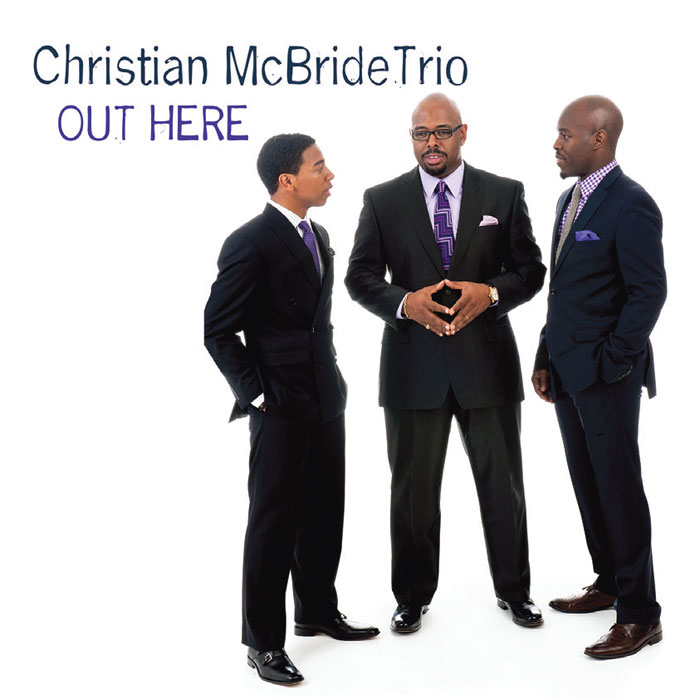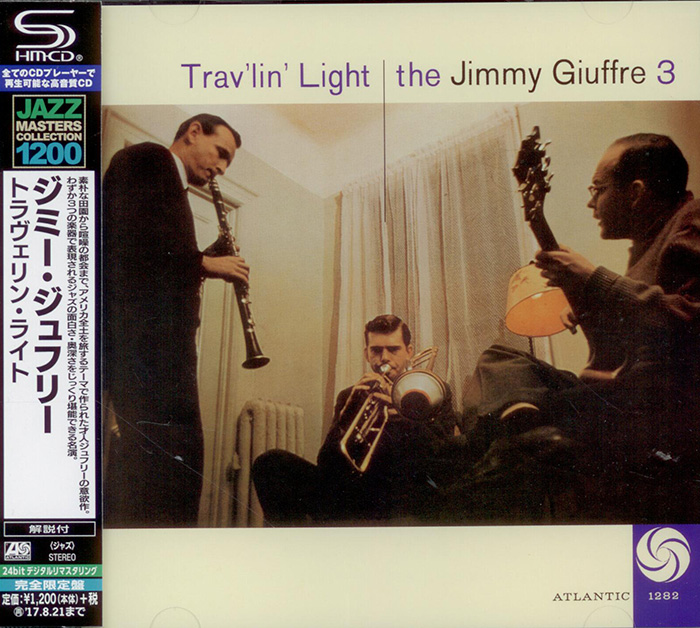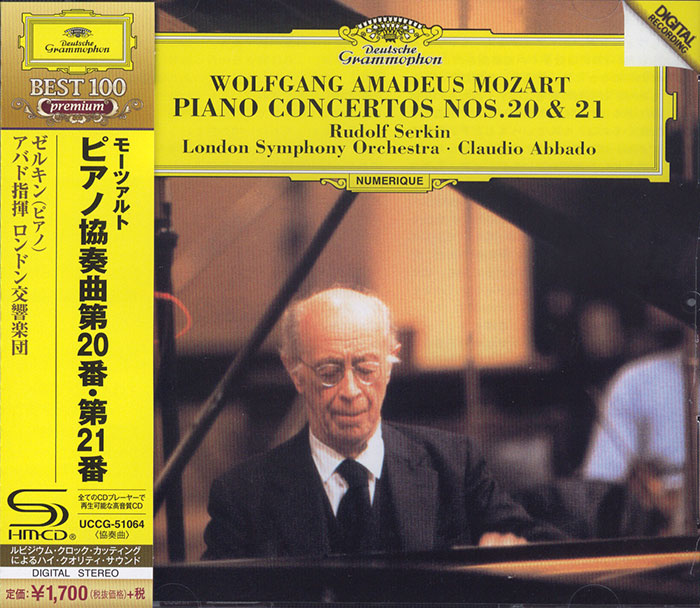Logowanie
Dziś nikt już tak genialnie nie jazzuje!
Bobby Hutcherson, Joe Sample
San Francisco
SHM-CD/SACD - NOWY FORMAT - DŻWIĘK TAK CZYSTY, JAK Z CZASU WIELKIEGO WYBUCHU!
Wayne Shorter, Freddie Hubbard, Herbie Hancock, Ron Carter, Elvin Jones
Speak no evil
UHQCD - dotknij Oryginału - MQA (Master Quality Authenticated)
Chesky! Niezmiennie perfekcyjny
Winylowy niezbędnik
ClearAudio
Double Matrix Professional - Sonic
najbardziej inteligentna i skuteczna pralka do płyt winylowych wszelkiego typu - całkowicie automatyczna
Helio Alves
Musica
Musica is a truly pan-American affair that features prominent musicians from throughout the hemisphere. Bassist Reuben Rogers, whose extensive credits include work with Joshua Redman and Diane Reeves, was raised in the Virgin Islands. Mexico City-born drummer Antonio Sanchez has played with Dizzy Gillespie's United Nations Orchestra, Danilo Perez, and, for the past eight years, with Pat Metheny. Trumpeter Claudio Roditi and guitarist Romero Lubambo, both originally from Rio de Janeiro, join the trio for two tracks a piece. While growing up in Sao Paulo, Brazil, studying classical piano, Helio Alves did not pay much attention to the samba and other indigenous rhythms that surrounded him. Yet today, as one of the most in-demand and consistently creative pianists on the international jazz scene, he incorporates samba, baião, and other Brazilian patterns into his technically stunning, rhythmically and harmonically challenging, and frequently rhapsodic approach to jazz. Such characteristics are especially evident throughout Musica, his fourth CD as a leader and first for bassist-turned-producer John Lee's Jazz Legacy Productions label (November 9). "I never studied Brazilian music per se, but it was always present," the New York-based pianist says. "It was everywhere. I always got to hear the Brazilian rhythms, and somehow they got into my music, I guess through osmosis." The disc's nine-song set includes Alves' adventurous interpretations of compositions by Dom Salvador ("Gafieira"), Moacir Santos ("Kathy"), Hermeto Pascoal ("Musica Das Nuvens E Do Chao"), Herbie Hancock ("Chan's Song"), Wayne Shorter ("Black Nile"), Dori Caymmi ("Flor Das Estradas)," and longtime associate Roditi ("Adeus Alf"). "Gafieira" is a fast samba named for a style that was popular in Rio dance halls during the beginning of the 20th century. "Kathy" is played in 5/4 time, and much of "Musica Das Nuvens E Do Chão" finds Alves improvising at a fast 7/4 clip. "Chan's Song," from the Round Midnight soundtrack, is treated to a gentle bossa-nova groove, and "Black Nile" utilizes elements of the baião rhythms of Northeastern Brazil. The remaining two selections were written by Alves: "Tribute to Charlie 2," a gently loping ballad in 6/8 dedicated to the late Charlie Banacos (as is the entire CD), and the multi-directional "Sombra." "I intended it to be very open and free," Alves says of Musica. "Antonio and Reuben are incredible interactive players and can really listen. Antonio's comping is fantastic behind the soloists. He just hears everything. It's a rhythm section that can play many styles." Helio Alves was born in Sao Paulo on October 5, 1966. Both his parents are amateur pianists. His conservatory-trained mother played classical music exclusively, while his dad played classical music and some jazz and had a few Dave Brubeck and Oscar Peterson records in his collection. Young Helio was especially fond of one by Peterson and Joe Pass. He began studying classical piano at age 6. His teacher, Elce Pannian, "was very strict," he says, adding, "It was great for my development at the beginning, but her not wanting me to play anything other than classical kind of made me interested in doing other things. It ended up being a good thing." At 13, Alves attended a duo concert by Chick Corea and Gary Burton in Sao Paulo. "It was so creative, and they sounded so free" he recalls. "I couldn't really understand everything at that point. It was way too advanced for me, but they looked like they were having a ball. It really grabbed me." Besides Corea, he cites McCoy Tyner, Keith Jarrett, and Bill Evans as primary influences. Jazz bassist Xu Viana, a judge at two high school jazz festival competitions that Alves won, became an early mentor, teaching the teenager jazz harmony and suggesting he attend the Berklee College of Music in Boston after finishing high school. Alves took his advice and, in less than four years, graduated with a degree in Professional Music. While attending Berklee and until quite recently, Alves also studied composition and improvisation with Charlie Banacos, whose other students of note included Michael Brecker, Marilyn Crispell, Danilo Perez, and Mike Stern. "He just gave me tons of ideas for my improvising," Alves says. Banacos died in December 2009. Alves moved to New York City in 1993 and began working immediately with Roditi, whom he had met earlier in Boston. Two years later, the pianist joined Joe Henderson's Double Rainbow Quartet, staying two years. Alves' other sideman credits include work with the Caribbean Jazz Project, Phil Woods, Herbie Mann, Airto Moreira and Flora Purim, Oscar Castro-Neves, Mike Stern, and Gal Costa, for whom he served as musical director for her all-star 2003 Carnegie Hall tribute to Antonio Carlos Jobim and Stan Getz. Currently, Alves divides his international touring schedule between engagements with his own trio, Roditi's band, vocalist Joyce Moreno, and the Brazilian Trio, a group he co-leads with bassist Nilson Matta and drummer Duduka Da Fonseca. The pianist has contributed to three Grammy Award-winning albums: Joe Henderson Big Band (1996), Paquito D'Rivera's Brazilian Dreams (2002), and Yo-Yo Ma's Obrigado Brazil (2003). He also can be heard on recordings by Roditi, Moreno, Da Fonseca, Biscoito Fino, Slide Hampton, Louis Hayes, Rosa Passos, and Gino Sitson. Alves previously recorded three albums under his own name -- Trios (1998), Portrait in Black and White (2004), and It's Clear (2009), all on the Reservoir Music label -- in addition to Songs from the Last Century, a 2006 collaboration with Da Fonseca for Blue Toucan Records. With Musica, his debut for Jazz Legacy Productions, the pianist seamlessly fuses sounds he absorbed in Brazil and the United States into a remarkably original, deeply satisfying whole.




































